We all want a more affordable way to run our homes, and small changes to how you use electricity can make a big difference to your bills. That’s why we’ve pulled together this list of practical energy-saving tips that many households across Northern Ireland are already using. With these steps, you can start lowering your electricity costs and take more control of your energy use.
How to save electricity with home lighting & appliances
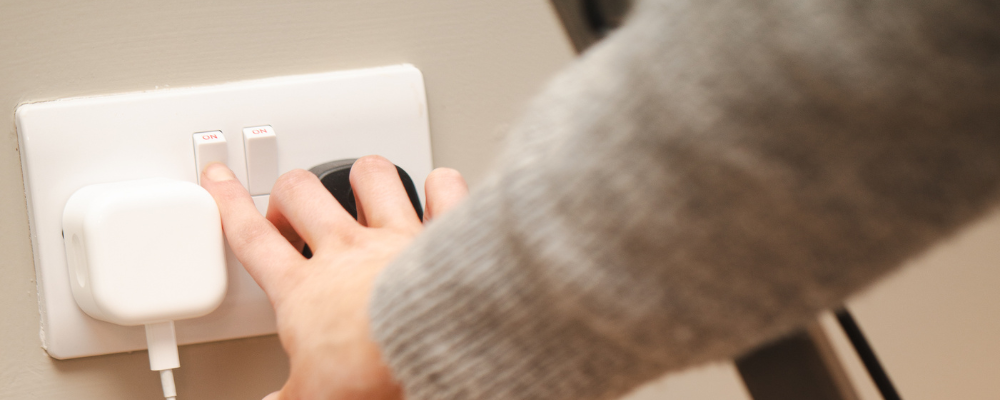
1. Turn off unnecessary lights
Remembering to switch off lights when you leave a room — even if you’ll be back soon — will help to cut your costs. Turning off lights you’re not using could save between £12 and £25 every year.
2. Switch to LED bulbs
Replacing regular light bulbs with LED bulbs will lower the amount of electricity used significantly. Using LED lighting throughout your home will reduce your carbon footprint by 50kg every year — and your electricity bill by around £65 a year.
3. Use TV power saving setting
Making simple changes to your TV's settings will help you to save electricity. Most TVs have a power saving or eco setting that will cut energy usage by lowering the brightness of the screen.
4. Don’t charge your mobile phone overnight
Mobile phones need as little as three hours to fully charge. Leaving your phone plugged in and charging overnight is a waste of energy. Try charging during the day as needed instead.
5. Turn off standby devices
Turning appliances off at the wall instead of leaving them in standby mode will help you to use less electricity. Try switching off your TV, TV box, microwave, electric shower and games consoles to save between £65 and £147 every year.
How to save electricity when bathing & washing
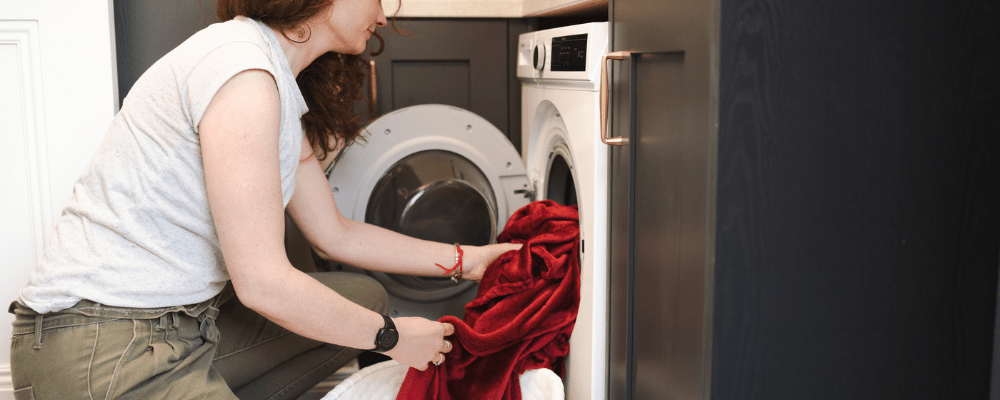 6. Wash clothes at 30°C
6. Wash clothes at 30°C
Washing your clothes at a lower temperature will use less electricity. Swapping from 40°C to 30°C cycles will save you up to £40 per year. It also means you’ll be able to do three washes for the same amount of energy you would otherwise have used on two washes.
7. Air dry laundry where possible
Hanging your clothes out to dry cuts tumble dryer use, and that significantly cuts electricity use. Using a clothes line or airer to hang your laundry can save up to £70 a year. Even drying indoors with a window open or using a dehumidifier will use less electricity.
8. Use tumble dryer balls
When using the tumble dryer is unavoidable, use tumble dryer balls to cut drying times — and electricity use — by up to 25%. The spiky balls go inside the dryer with your clothes and help them to circulate better for faster drying.
9. Take shorter showers
The average shower lasts for eight minutes. Cutting a minute off the time you spend in the shower could save you £35 a year. If you need longer, you could turn off the shower when lathering to make savings.
10. Swap baths for showers
Swapping one bath a week for a four-minute shower will save around £20 a year on your energy bills. Showers are far more energy efficient than baths. If you use your immersion heater to heat water for your bath, showering instead will save a lot of electricity
How to save energy when heating your home
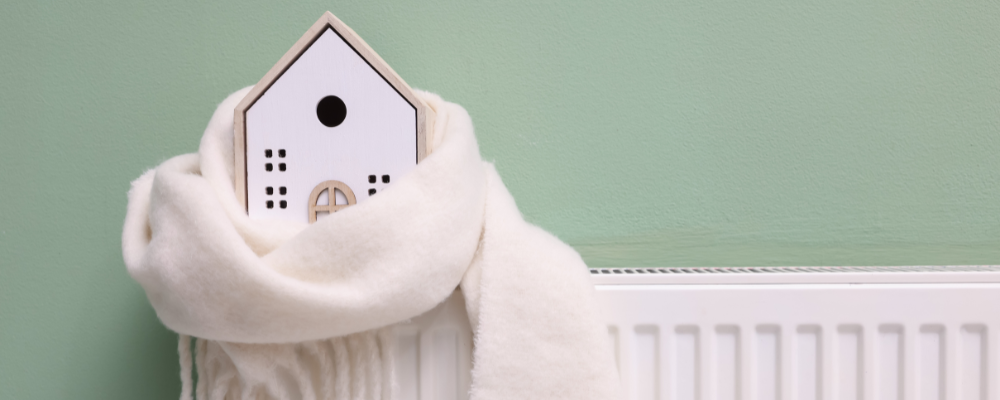
11. Lower your thermostat by 1°C
Turning your thermostat down by just 1°C could cut your overall heating usage by 10%, which can make a big difference to your heating costs. Most people won’t notice the change in temperature if you layer up, but it can save you money throughout the year.
12. Only heat the rooms you use
If your home has room-by-room controls or individual heaters, switch off heating in rooms you’re not using. Spare rooms and hallways usually don’t need full-time heating. Also try to keep doors closed, to conserve heat in the rooms you use.
13. Use heating timers
Setting your heating to come on only when you need it helps avoid wasting energy. Timers ensure your home is warm when you need it, without running the heating unnecessarily in the background.
14. Draught-proof your home
Closing curtains at night, blocking draughts, bleeding radiators (and keeping radiators clear) will help rooms stay warmer for longer. This reduces how hard your heating system needs to work, cutting energy use.
15. Use electric heaters wisely
Electric heaters, like Blow heaters, use a high amount of electricity for every hour they’re on, which makes them one of the most expensive home appliances to run. Use them only for short bursts to warm a room, and switch to your main heating system to keep the cost down.
How to save electricity when cooking for your household
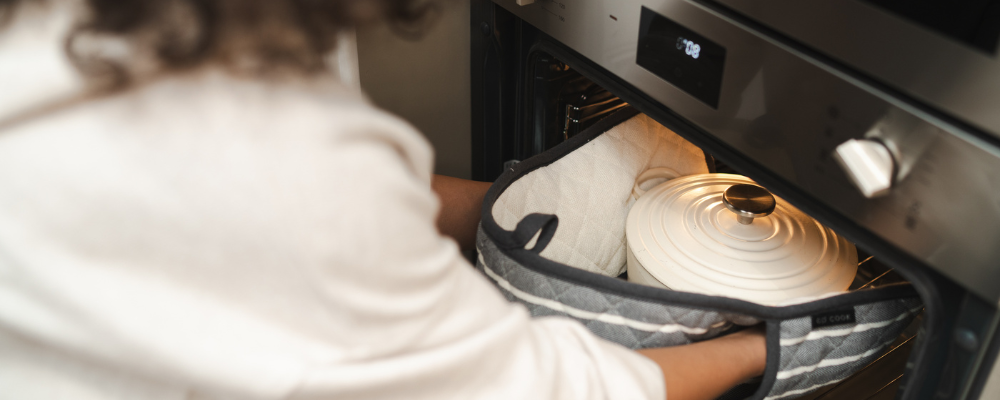 16. Use microwaves or air fryers
16. Use microwaves or air fryers
Both microwaves and air fryers use far less energy than electric ovens. Make the switch where possible to cut cooking times and electricity costs. For example, cooking a jacket potato costs around 7p in a microwave, 27p in an air fryer and 37p in an electric oven.
17. Use hobs efficiently
How you operate the hob can have a big impact on how much electricity is used. Using smaller pans, choosing the most suitable ring on the hob, and using lids on saucepans will all reduce the amount of electricity you use when cooking.
18. Batch cook meals
Batch-cooking meals will help to cut your oven use. Making enough to serve double or triple portions, or cooking more than one meal at the same time, means you’ll get more meals out of the same amount of energy use.
19. Don't overfill the kettle
Kettles use a lot of electricity. Filling the kettle with more water than you need wastes energy and costs money. Only filling the kettle with as much water as you need is a simple way of saving around £13 a year.
20. Only use your dishwasher if it’s full
Only use your dishwasher once it’s completely full of dirty dishes to cut down on the number of cycles you need. If you wait until your dishwasher is full instead of washing partial loads, you could save up to £17 a year.
How to save electricity with fridge freezers
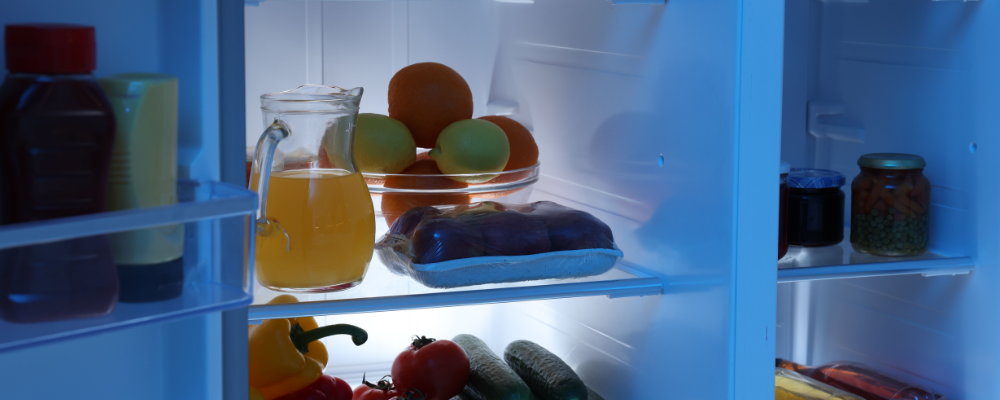
21. Clean fridge coils
Cleaning the condenser coils on the back of your fridge will help to keep it working efficiently. You’ll just need to gently dust the coils, which are usually found underneath a panel that you’ll need to remove with a screwdriver.
22. Defrost freezer regularly
If your freezer is full of ice, it operates less efficiently and uses more electricity. Defrosting it regularly will keep it working in peak condition by making sure the motor doesn’t have to work too hard to maintain the right temperature.
23. Keep fridge freezers full
Keeping your fridge or fridge freezer about three-quarters full will help it to retain its temperature. The temperature doesn't drop as quickly in a full freezer when you open the door, which means it doesn’t have to use as much electricity to restore the correct temperature.
24. Check the temperature of fridge freezers
The ideal temperature for fridges is 5°C and for freezers is -18°C. If you're running your appliances colder than this then you're wasting energy and spending money maintaining temperatures that are cooler than you need.
25. Defrost frozen food in the fridge
Plan ahead and defrost frozen food in the fridge overnight the night before you need it. Letting your fridge do the hard work saves you electricity that you’d otherwise use defrosting food in the microwave.
Long-term investments to save energy at home
Alongside everyday habits, you can also make longer-term upgrades that help you use less electricity and lower your bills year after year. These options often involve an upfront cost, but many households find they more than pay for themselves over time.
Upgrade to energy efficient appliances
Replacing older appliances with energy-efficient models is one of the quickest ways to reduce electricity use. Appliances are rated from A (most efficient) to G (least efficient), and choosing a higher-rated model can make a noticeable difference to your bills.
Upgrading from an F-rated to an A-rated fridge freezer could save hundreds of pounds in electricity over its lifetime.
If you’re a Power NI customer, Power NI Perks can help make these upgrades more affordable, with discounts at retailers like Argos, B&Q and Currys.
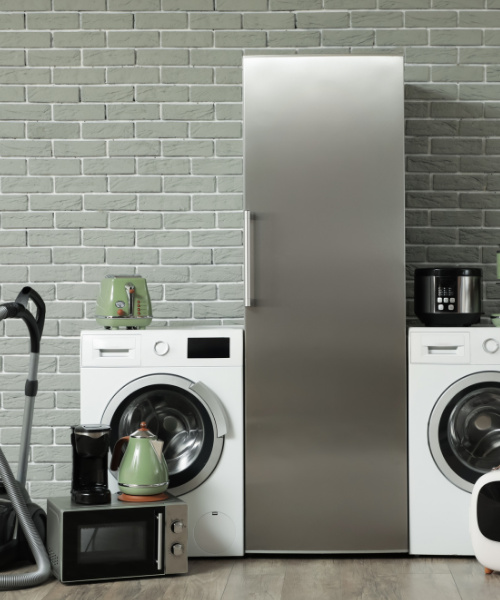
Invest in solar panels and solar battery
Installing solar panels is a long-term way to reduce the amount of electricity you need to buy from the grid. If your home has good roof space and receives enough daylight, you can generate your own renewable electricity and lower your bills.
Adding a solar battery also means you can store the energy you produce during the day and use it later.
We offer solar panel installation and solar battery installations in Northern Ireland, and can let you know whether your home is suitable.

Switch to pay-as-you-go electricity
Some households prefer pay-as-you-go because it helps them stay in control of their energy costs.
If you are a Power NI pay-as-you-go customer, Keypad+ offers 24/7 online top-ups with a 2.5% discount and a free smartphone app.
You can view your top-up history and keep an eye on what you’re using, helping you make choices that reduce your electricity consumption.
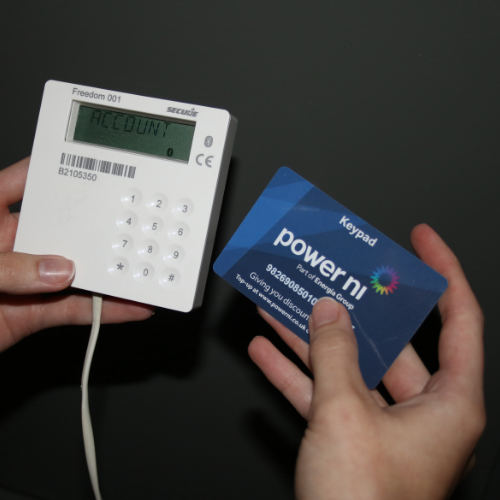
Go for a time-based electricity tariff
Time-based tariffs charge different unit rates depending on when you use electricity. If you can shift more of your energy use to off-peak hours, this type of tariff can help you save.
If you are a Power NI customer, Economy 7 is an example of a time-based tariff.
It offers a lower night-time rate and a higher day rate, which may suit households that run appliances overnight like washing machines, or those who charge electric vehicles at home.
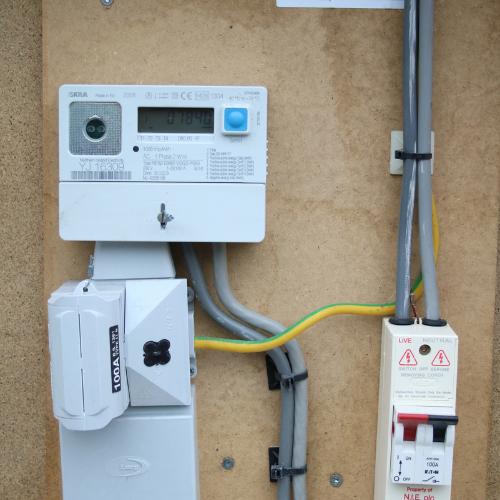
Ready to save electricity in your home?
It’s time to put these energy saving tips into practice, and start saving money on your household electricity. A good place to start is by making sure you’re on the right tariff, and getting the best unit rate.
Explore Power NI TariffsFrequently asked questions
-
How much electricity does the average household use in Northern Ireland?
The latest government figures show that the average home in Northern Ireland uses around 3,117 kWh of electricity annually, meaning the average household uses roughly:- 260 kWh per month
- 60 kWh per week
- 8–9 kWh per day
-
Is electricity cheaper at night?
Electricity can be cheaper at night if you’re on a time-of-use tariff, such as Economy 7, where the overnight unit rate is lower. These plans offer a lower price during off-peak hours, usually overnight, when demand on the electricity grid is much lower.
If you’re on a standard single-rate tariff, your electricity costs the same no matter when you use it, so running appliances at night won’t save you money unless you move to a time-based plan. -
What is the best way to monitor my electricity usage?
To monitor your electricity usage, you can check your electricity meter, look at your energy app, or review your electricity bill. These will show how many kWh you’re using and how that changes over time. A home energy monitor can also give real-time readings to help you see which appliances use the most electricity.
If you are a Power NI customer, your bill will show your kWh usage, the unit rates you’ve paid, and how your usage compares with the same period last year. Pay-by-Bill and Keypad+ customers can also track usage through the Power NI app.
For further details, check out our How to monitor electricity usage at home guide.


